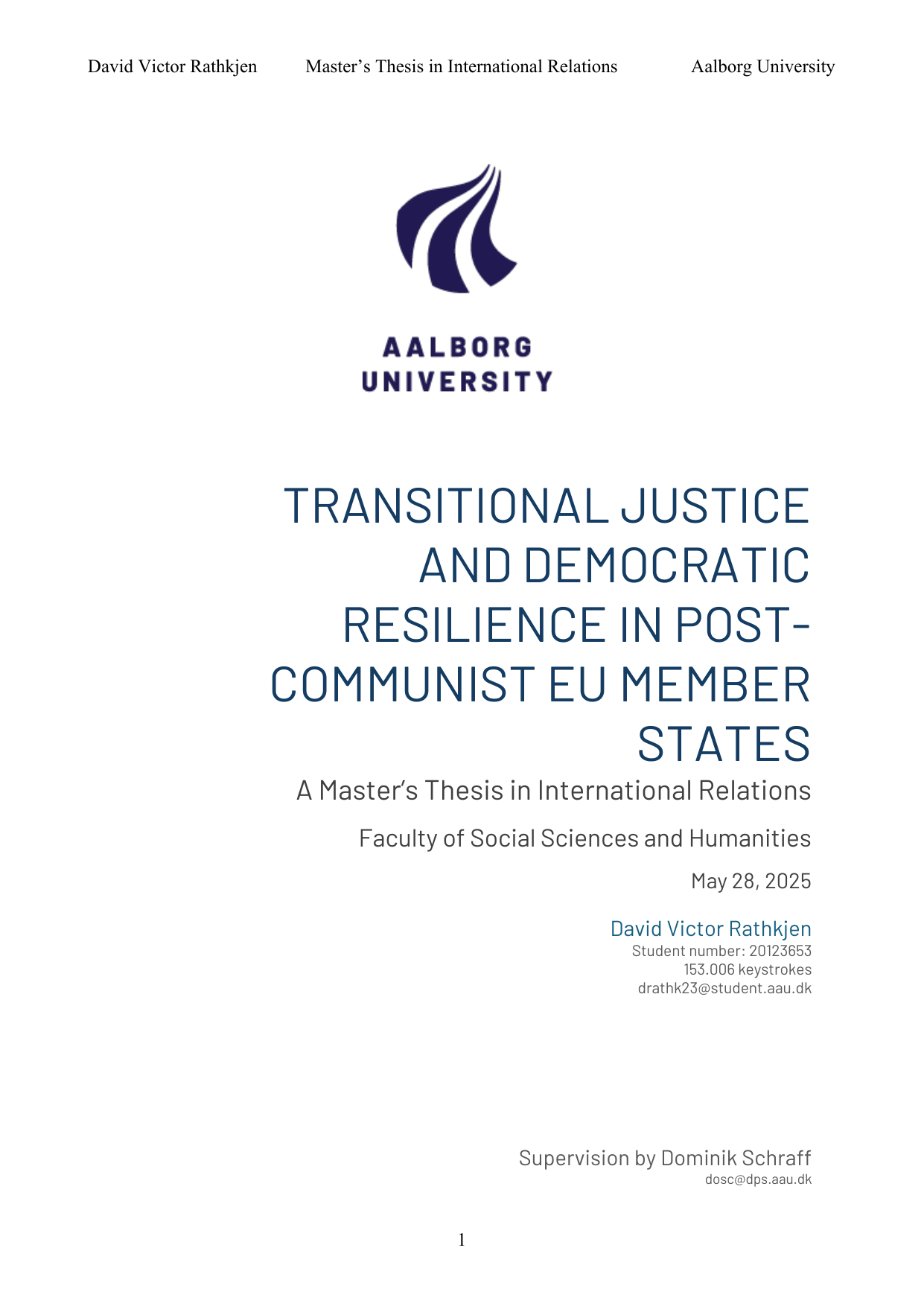
Transitional Justice and Democratic Resilience in Post-Communist EU Member States
Author
Term
4. semester
Education
Publication year
2025
Submitted on
2025-05-28
Abstract
This master’s thesis investigates whether transitional justice creates more resilient democracies. It does so by using empirical evidence from Central and East European EU member states. Today, many Central and East European (CEE) member states experience democratic backsliding with Hungary and Poland being the most infamous cases, but countries as Romania and Slovakia also experience significant democratic backsliding. The Central and East European member states are unique in the sense that they until 1989 all were Communist dictatorship and after 15-18 years of democratisation, they became EU member states. As part of their democratisation process all CEE member states adopted different degrees of transitional justice to avoid sliding back to authoritarianism. While scholars try to find different explanations for democratic backsliding in CEE such as political polarisation, populism, and economic grievances, this master’s thesis asks whether the conditions for democratic resilience and democratic backsliding are predetermined in the short period of 1989-2004 democratic consolidation before EU membership. It does so through a qualitative comparative analysis (QCA) where the necessity of different conditions such as level of transitional justice, level of corruption, political polarisation, etc. are tested on the outcome of liberal democracy, to see what conditions are necessary for liberal democracy in a Central and East European context. The QCA is followed by a comparative case study analysis of five CEE countries to investigate how transitional justice affects transitional justice. Through the analysis the thesis finds that transitional justice does create more resilient democracies, but only through wide measures. It further finds that a swift commencement of transitional justice early in the democratisation process is crucial, as time allows for the institutions of the former regime bureaucracy to conceal and perform an institutional mimicry appearing to be democratic. Thus, leaving the newly established democracy with institutional weaknesses that can be unfolded and exploited under the right authoritarian pressure. This thesis also investigates alternative explanations for democratic resilience and finds that government ideology at the onset of democracy and historic legacies affect democratic consolidation, as centre-right governments and the legacy of pre-Communist democracy played a crucial role in consolidating democracy in the Czech Republic and the Baltics.
Documents
